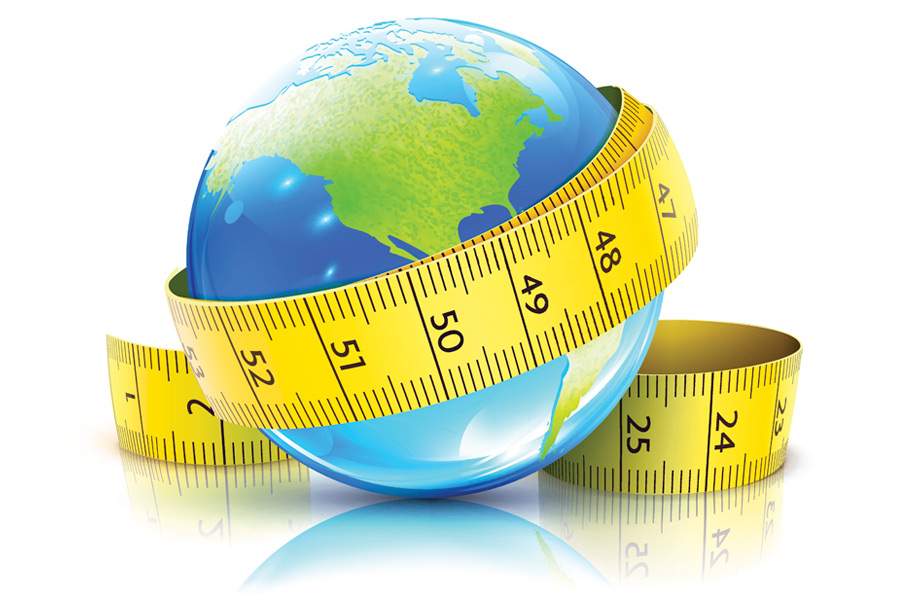Earth Losing Weight: Other Planets Getting Jealous?

In eighth grade, my science teacher told the class about atoms. They consist of electrons revolving around protons and neutrons mashed together as a nucleus. I was very excited to learn this.
The reason was that in grammar school we had taken a trip to the planetarium, and there I saw all the planets revolving around the sun. There was a similarity that was unmistakable. And there, in eighth grade, I thought I had now stumbled upon a parallel that perhaps nobody had noticed before. We are people on the earth revolving around the sun who assume we are the only people in the universe. Maybe there are little tiny people on the electrons revolving around the nucleus who believe they are the only people in the universe. Wow! Wait until the world hears about this!
I was not, as an eighth grader, able to find a way to bring this wonderful news to the rest of the world. And by the time I was in the ninth grade I had found out, much to my disappointment, that others had already put forth this theory in scientific magazines. I also learned that the solar system revolves around inside the Milky Way. There was also something called a Big Bang. Oh, well.
I mention this because I recently learned, through an article in The New York Times, that the earth, traveling around the sun, is getting lighter and lighter. It is not that the exertion of running around the sun has resulted in the pounds melting off. It is also not because we are sending off rocket ships into outer space as we are now doing, although that makes a miniscule difference in the earth’s weight. The real issue is that Earth is emitting gas—hydrogen and helium. The stuff is lighter than air and, when released from the earth’s innards, flies up into the sky. Although most of it is trapped by the atmosphere and sent back, at least some of it finds a way to escape. So Earth is trailing gas.
And I suspect that if there were a giant creature out there and the earth recently passed through, they could sniff the atmosphere and say, “Yup, that’s Earth I smell. Just went through.”
It’s also the case that things from outer space, mostly asteroids and meteors, are constantly hitting the earth as the planet hurries along. Here on the surface, we experience very few. Many of them burn up in our atmosphere and come down as ash. But occasionally a big one hits, and it has a deleterious effect. On an annual basis, it’s 60,000 tons of meteors and satellites showering down every year. And it’s 90,000 tons of gas escaping every year. Net loss, 30,000 tons, plus maybe a few thousand pounds every year of rockets, largely fabricated from minerals mined from inside the earth, heading out to Mars and Saturn and points unknown.
Here’s my take on this. Every one of us goes through our day fending off the slings and arrows of life. Could be a snowball to the back of the head. Could be a seagull pooping on your hat. Could be a bus in a rainstorm driving through a puddle and splashing muddy water on you.
All these things stick to you and increase your weight. Although it’s true you can wash most of it off. On the other hand, getting through the day, you emit gas. Let’s face that fact. You are trudging along on a smaller scale, the earth is rumbling along on a medium-size scale and, well, all this is happening in the same sort of parallel as the specks sitting on the Milky Way spinning around the universe, the smaller specks sitting on the earth spinning around the sun and the specks sitting on the electrons spinning around the neutrons.
And then there’s God, overlooking it all. My guess is he is smiling at what he hath wrought.



